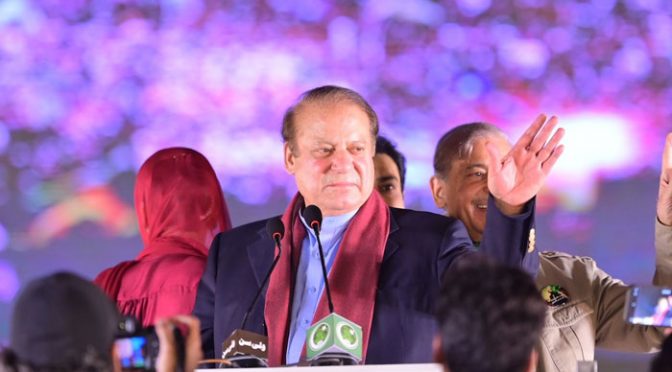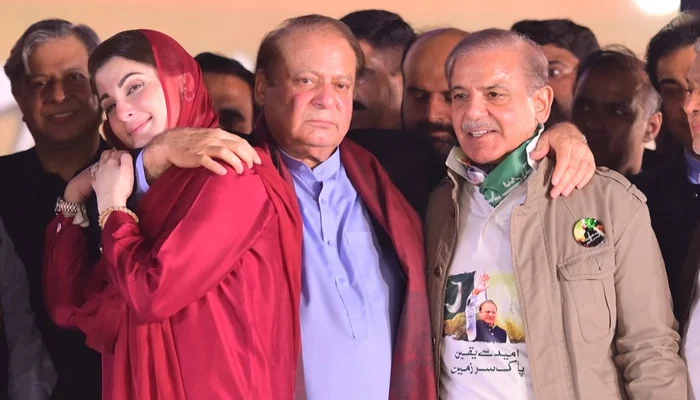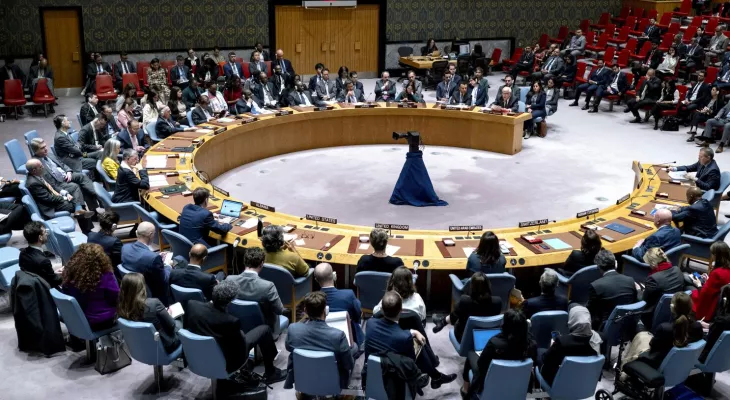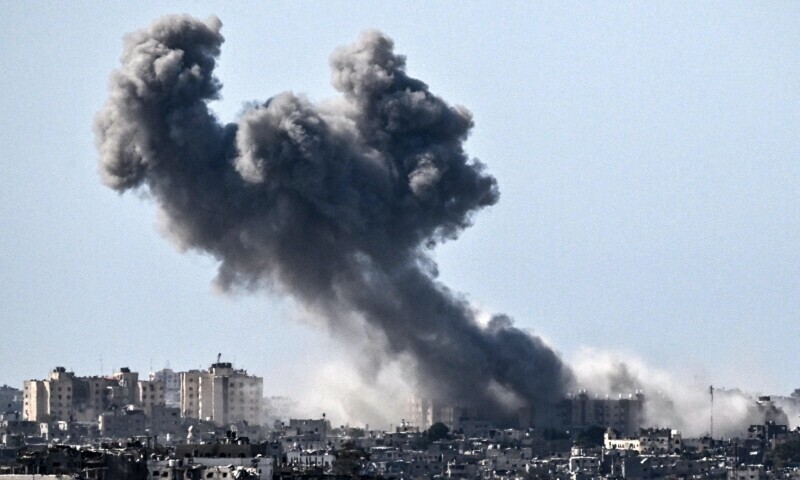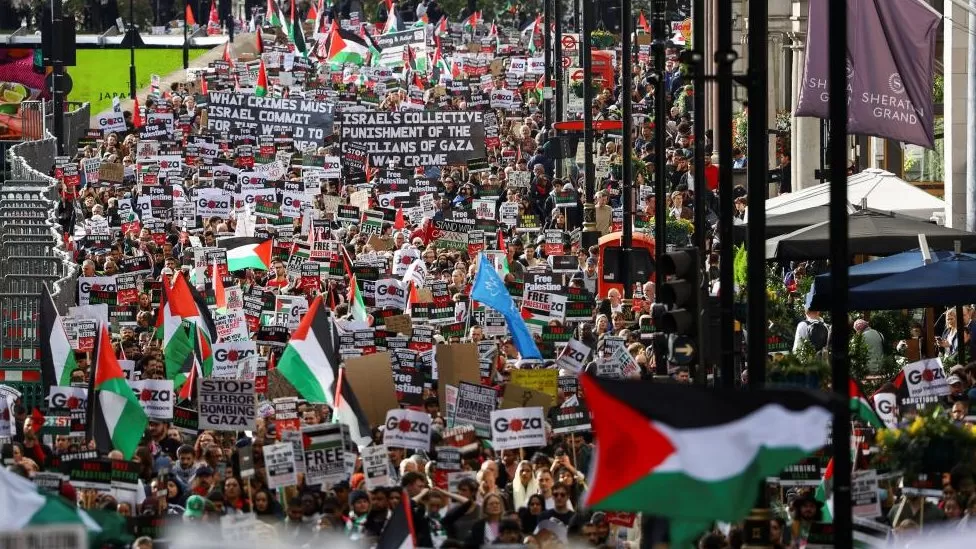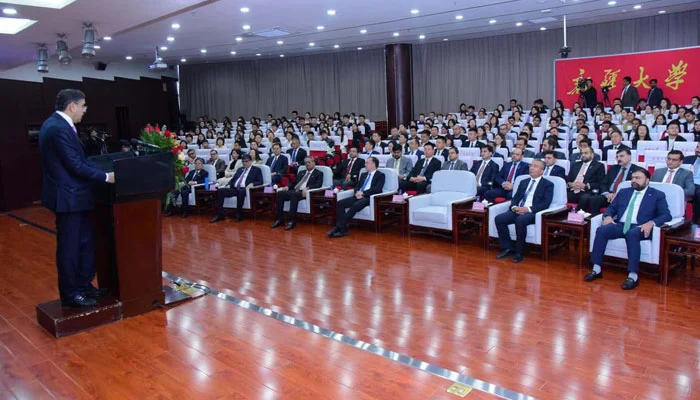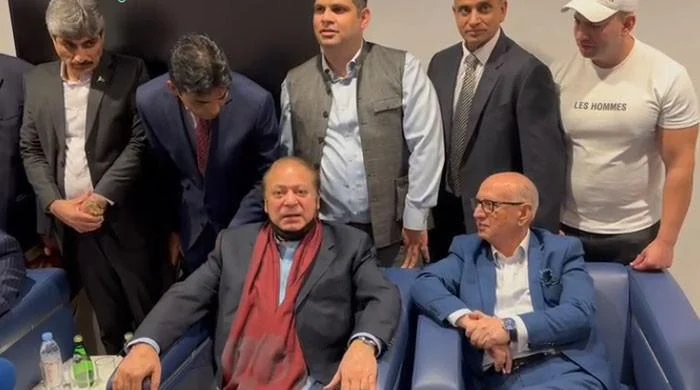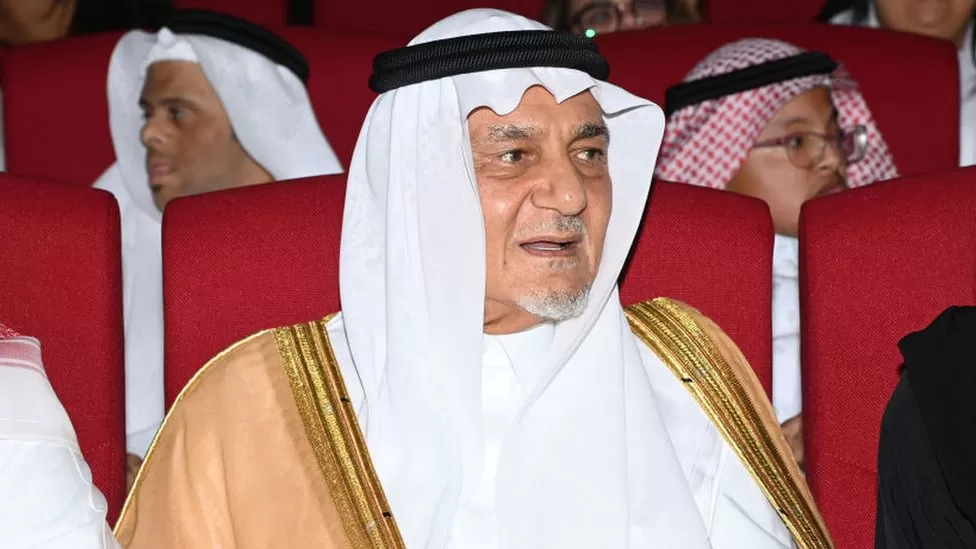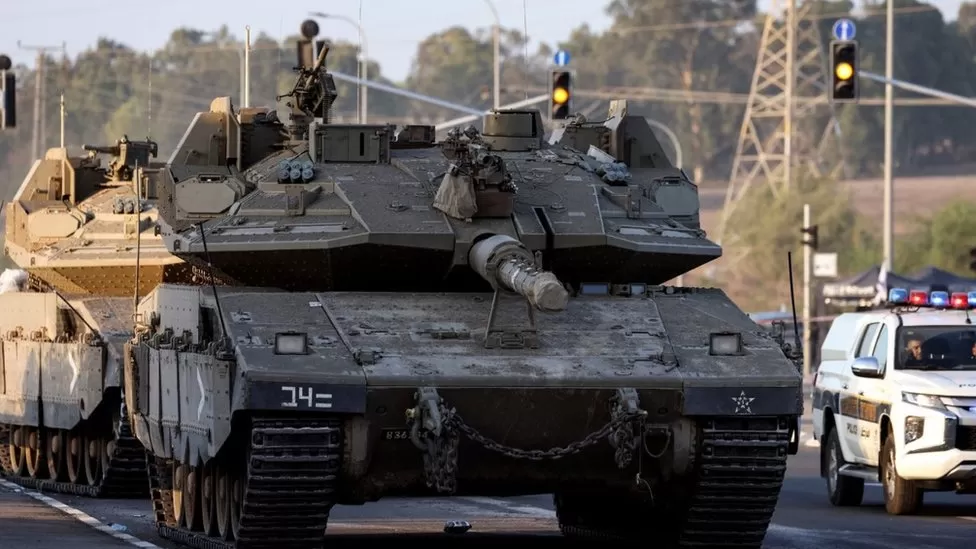Pakistan Muslim League-Nawaz (PML-N) supremo Nawaz Sharif said Saturday he had no intention of taking revenge on his political opponents and at the same time asked all constitutional institutions to join hands for the country’s development, as the three-time prime minister ended four years of self-imposed exile in London.
The former prime minister briefly landed in Islamabad, where he signed and filed appeals against the convictions he was jailed for before he left the country in 2019. After a few hours’ stay, Nawaz flew to Lahore to kick-start his party’s campaign for next year’s election in a rally of thousands of his supporters.
Read all updates of his homecoming here.
While he cannot run for or hold public office because of his convictions, Nawaz promised to tackle record inflation.
“I don’t have the slightest wish for a revenge but all I wish is to see the no poverty or illetracy in the country,” said the 73-year-old veteran politician in his address at Minar-e-Pakistan in Lahore.
“I am meeting you after a long time, but my love for you remains intact. You have never betrayed me and I have never betrayed you,” he told the crowds, wearing his signature red scarf.
Nawaz said his spirits to serve the country have not died even after four years.
“We’ll have to decide how to regain the lost status,” the former premier said while vowing to resolve the country’s issues.
‘Progress not possible under conflict with neighbours’
Nawaz also hinted at mending the country’s ties with India, saying that “we can’t progress under conflict with the neighbours”.
He said that Pakistan will have to move ahead “with grace and tactics” for the resolution of Kashmir issue.
Earlier, Nawaz began his speech that he was proud to see “loyalty in the eyes of people”.
He said that he served the country with loyalty whenever he was given a chance, he resolved the issues of Pakistan and never hesitated from any sacrifice.
The former premier regretted the “false” cases against him, Shehbaz, Maryam, and other PML-N leaders.
Nawaz brandishes power bills during his time as PM
The PML-N supremo recalled making Pakistan a nuclear power and “ending” load shedding in the country during his time as the prime minister.
“Do you remember those 18 hours of loadshedding? Who ended it?” he asked, noting that it was under his leadership that the power issue was resolved.
He then showed the bill as well, which has now skyrocketed due to the rupee-dollar parity and a rise in fuel prices.
‘Some wounds never heal’
The former premier stressed that “some wounds never heal”, saying that the wealth of this life may go away and come back to you with the blessings of God but the loved ones who pass away never come back,” he said while referring to the passing away of his mother and wife when he was facing the legal battles.
He said that these women won’t be there to receive him at his home like they did in the past.
He then recalled the time when he was given the news of his wife’s passing.
Why are my govts ousted? Nawaz asks once again
Sharing his ordeal in Rawalpindi’s Adiala Jail, three-time former premier Nawaz said that Maryam lost consciousness when he told his daughter about the death of her mother.
The elder Sharif said: “I am a true Pakistani.”
Talking about Pakistan’s nuclear tests on May 28, 1998, the former premier said that then-United States president Bill Clinton and other world leaders had been pressuring and refraining him from the tests and offered $5 billion in this regard but he refused the offer and made Pakistan a nuclear state.
Without taking the name of deposed premier Imran Khan, the elder Sharif asked: “Could he have dared to refuse the US president?”
“Clinton had offered $5 billion to me in 1999 for not carrying out nuclear tests, but my conscience did not allow me to accept the thing which was against the interest of Pakistan,” he added.
He maintained that they conducted the nuclear tests and gave India a befitting response.
“Are our [PML-N] governments toppled down and rulings are issued against us [for refusing the US and taking stance for the interest of Pakistan]?,” said the PML-N supremo.
Nawaz laments ongoing economic crises
PML-N supremo Nawaz Sharif said no one in Pakistani would be unemployed if his party was allowed to continue the “1990s momentum”.
“I was ousted because I didn’t allow the dollar rate to fluctuate,” he said.
Nawaz lamented that due to the ongoing economic crisis, “one has to decide whether to pay electricity bills or take care of one’s children”. “People are committing suicide, and borrowing money to pay the bills.”
“[During my tenure] the poor had enough financial resources to [at least] to seek healthcare and get himself treated.”
“This didn’t start in Shehbaz’s tenure. it started way before that. The dollar was out of control, bills were going up, and rates of daily utilities and petrol were also surging.”
“During our tenure sugar was 50 rupees per kilogram, today it is at 250.”
“This is why you ousted Nawaz Sharif?” the former prime minister said while criticising his disqualification in 2017.
“Pakistan was on its way to becoming an Asian tiger, we were preparing to ensure Pakistan’s inclusion in the G20.”
“A lot of countries which were trailing us are now leading us. We have been left behind. Not only do we have to catch up with those countries but in fact have to surpass them.”
Nawaz slams PTI’s sit-ins
Turning his guns towards arch-rival Pakistan Tehreek-e-Insaf (PTI), Nawaz slammed the sit-ins staged by the former ruling party.
“I am addressing any political gathering after a gap of six years as I faced cases for two years.”
“I have come today with electricity bills from May 2016 during my tenure as PM when there were sit-ins but we were busy doing our work.”
“You know who was orchestrating the sit-ins? […] But we ensured the provision of electricity to your homes despite the sit-ins,” Nawaz said while commenting on sit-ins during his tenure.
Moving on to skyrocketing inflation, the PML-N supremo said that roti was being sold for Rs4, sugar at Rs50 per kilogramme and petrol at Rs60 per litre in his tenure.
“US Dollar was at Rs104,” he said, adding that they did not let the local unit fall against the greenback.
He once again raised questions over his disqualification as prime minister and asked the participants if they agreed with the verdicts against him.
“I was ousted from the Prime Minister’s Office for not taking salary from my son,” he added.
The former premier claimed that there would have been no poverty and unemployment in the country if the work started in 1990 continued.
Nawaz condemns Israeli bombardment of Gaza
Commenting on the ongoing Israeli bombardment of Palestine, Nawaz said: “We condemn the barbarism, and brutalisation of Palestinians […] May Allah help Palestine [Palestinian people].”
“We urge the world [powers] to ensure a [viable] solution of Palestine [issue].”


